Eat your way across L.A.
Get our weekly Tasting Notes newsletter for reviews, news and more.
You may occasionally receive promotional content from the Los Angeles Times.
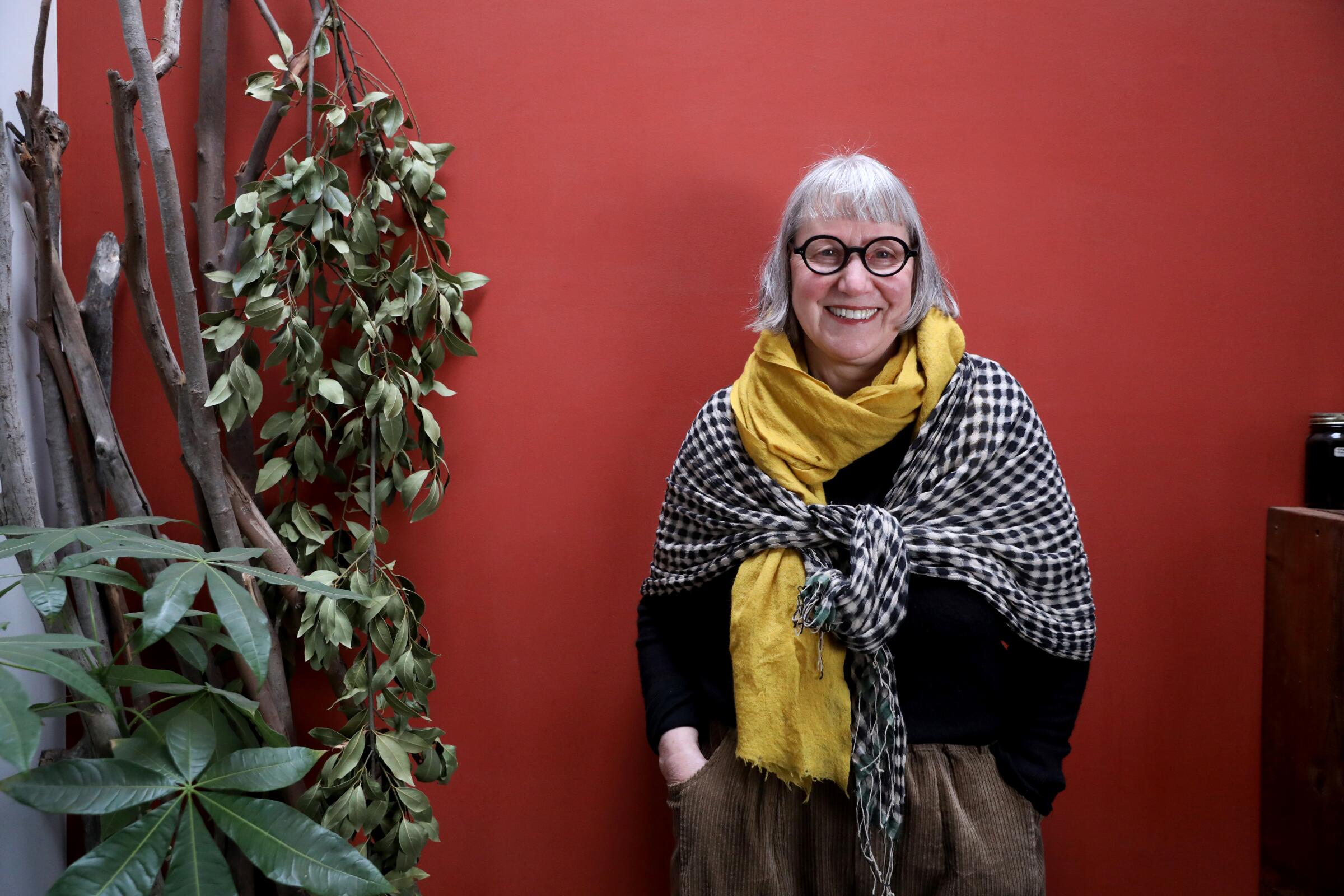
June Taylor’s clementine marmalade is complex and layered, like a Philip Glass piece, a Gabriel García Márquez novel or a long phone conversation with your mother. The sensations of sweet and tangy hit the tongue almost simultaneously and have nearly dissolved away before the sour notes kick in, along with a registering of the texture: syrupy, not gloppy or jelly-like. Finally, there’s the perfect, meaty bit of rind, neither too tough nor too wispy, with a firm but yielding bite and hint of bitterness.
Taylor is a preserves whisperer, coaxing nuance and depth of flavor from fruit, like a good sports coach might work with an athlete. In July, she announced she was planning to retire after 30 years and closing her West Berkeley shop, June Taylor Company. Since news of the closing went public, customers have made a run on its jams, butters, marmalades and syrups (one person placed a $1,500 order).
During a visit to her shop-cum-kitchen, a large stainless steel pot, purchased at Sears, bubbles and brims with thick, sweet-smelling liquid over high heat. (Taylor doesn’t use copper pots, the commonality of which in preserves-making she attributes to pretentiousness: “It makes something mysterious and inaccessible,” she said.) It’s one of the final batches of marmalade Taylor will make at the store, alongside Magali Hernandez, who has worked with her for 16 years.
Taylor, born and raised in working-class London, drags a wooden spoon through the pot and releases small, quarter-sized spots of liquid onto a nearby baking tray. This is what she calls the “drop.”
“I can tell by looking at it, it’s very close,” she said.
Like all skills that take years to develop, making a good marmalade is simple — just a few ingredients, and the cooking time is about 30 minutes — yet it incorporates a complex calculus internalized by endless observation and repetition.
Taylor squeezes out a few blobs of pectin from a cheesecloth bag filled with membranes and seeds and flings them into the pot. “You have to add liquid, then you have to cook it away. Because if you don’t take sufficient liquid away, you won’t get a set,” she said. “Insufficient cooking can lead to mold.”
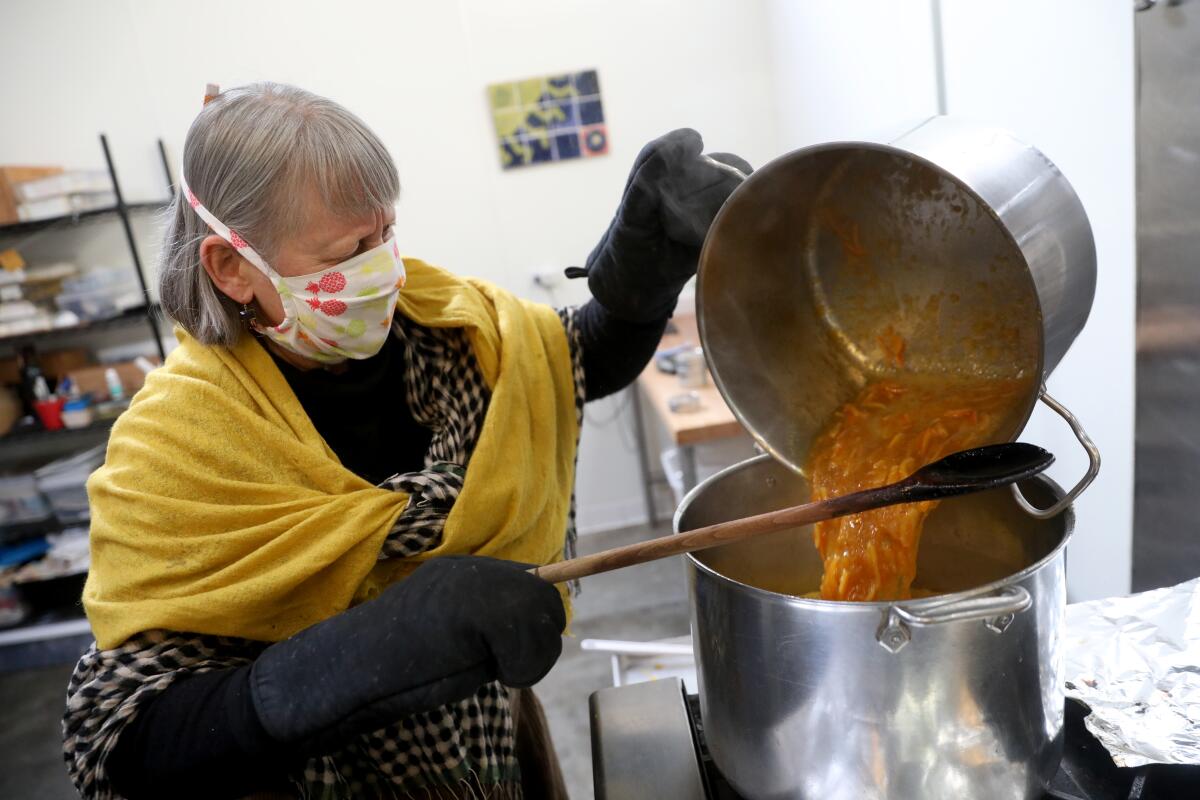
Taylor came to America in 1981 and stayed after meeting her now-husband, Perry, a web designer and manager. After two years in restaurants, which included stints at Bay Area fine-dining establishments Santa Fe Bar & Grill and Oliveto, she began selling marmalade at the farmers market to bring in money while caring for their son, Kyle, who is now 32.
Taylor admits that, after nearly 40 years in the United States and raising a family here, she’s become somewhat Americanized. But that doesn’t remove the chip on her shoulder regarding the food of her home country. “I always wanted to prove something to the American audience about British food,” she said.
To that end, in addition to preserves, she bakes a dark, dense fruitcake, or Christmas cake as she calls it, every December. She sold about 240 this season.
I’m interested in fruitcake and bought one to try myself — Taylor’s was unlike any I’d ever tasted. Similar to how a lump of coal apocryphally can be squeezed into a diamond, Taylor’s cakes taste like a thousand bunches of grapes have been soaked in port and crushed into a 1-pound block. They are astonishing.
I visited Taylor’s shop in late December as she was finishing up orders and beginning the process of breaking down her showroom and kitchen. I asked about her philosophy regarding preserves and reflections on her years in the industry.
This conversation has been edited for clarity and length.
On food values and the meaning of the word artisanal:
Intimacy. Integrity. Quality. Detail. Connection. Curiosity. Control. Love. A love of my craft. I have grown to love it so deeply. I feel very deeply connected to fruit.
I don’t talk to a lot of businesspeople, but the standard thinking is to grow to be bigger, to sell, you know, to make more to cut costs. I’ve never been particularly interested in those values. I am interested to be deeply involved, to explore, to grow my understanding. And it took years to get to that place.
It took me six years to understand that I wasn’t in control. And that wasn’t even the way to think about it. It took me 10 to 15 years to really explore the craft, to get to a point where I felt like I could express myself, play.
It’s a mutual relationship, you know, with fruit. And it might sound a little ... kind of romantic, I don’t know.
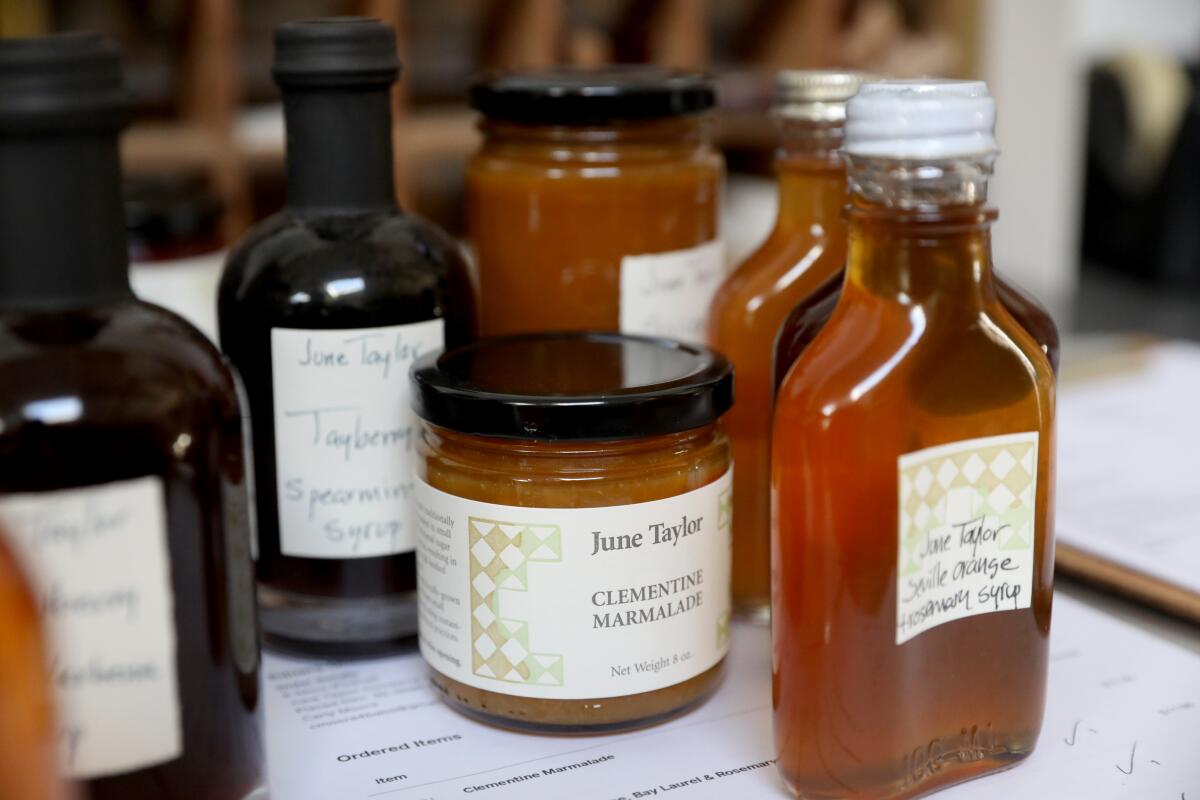
On her philosophy toward fruit and the perils of modernization:
I look at fruit now and, No. 1, I make it work and make it pay for itself. We’re doing clementine right now on the stove. The tops and tails that we’re not using we’ll candy. The membranes all get segmented away; we use that to make pectin. And then the fruit goes in. So there’s zero waste.
I look at food history, I look at how people behaved and what their thinking was, and emulate that in the modern time. It’s important not to lose those skills, not to lose that sensibility because we’ve come so far away from it.
Industry kind of knocked us over the head and said, “We can do it cheaper, we could do it better, we can do it faster.” And I’ve always maintained, yes, you can do it cheaper, and you can do it faster, but you certainly can’t do it better.
We have to cherish these ways. Because we’ve gone down the rabbit hole so far, we have to take our skills back.
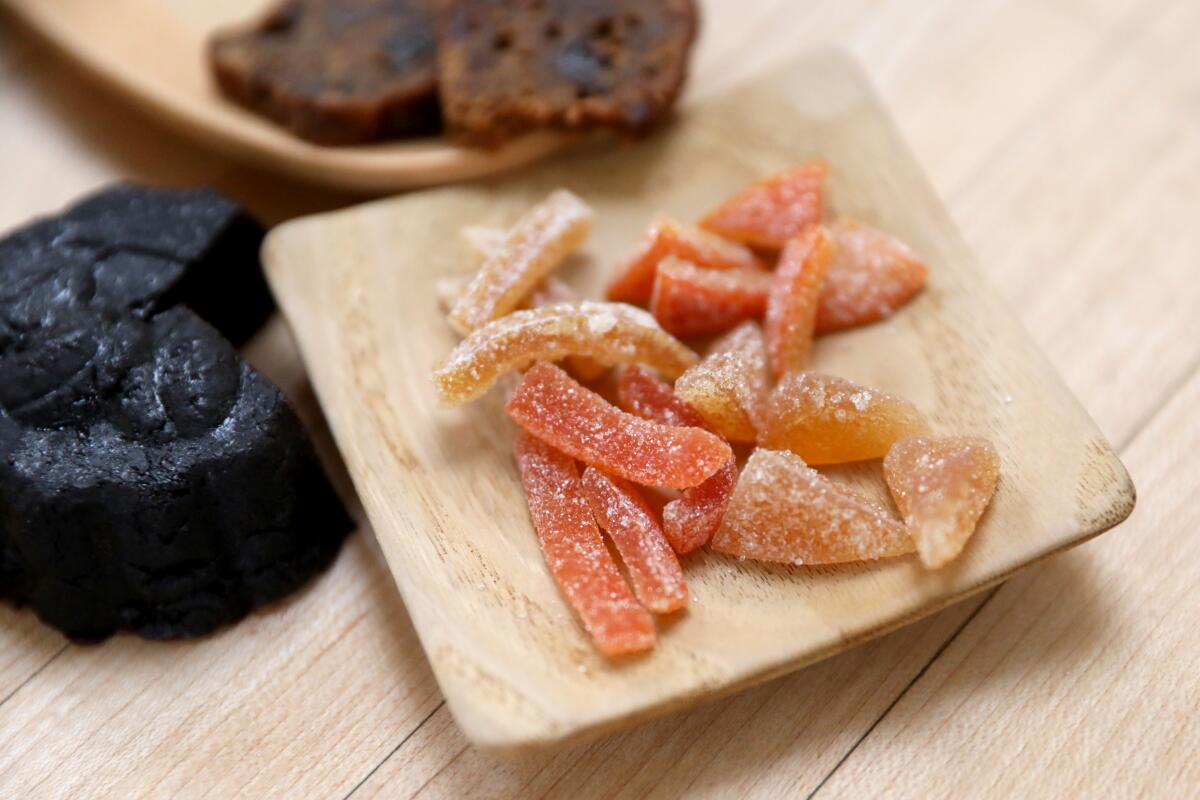
On kitchen culture and working at the Santa Fe Bar & Grill in the 1980s:
I worked there for about six months, and I quit. It was professionally very rigorous, and I learned a tremendous amount, but it was abusive. And I couldn’t handle it.
When I asked for a raise, which I can’t even believe I had the confidence to do, I got screamed at, told that I was lucky I wasn’t sleeping in a cot in the back like in France, blah blah blah.
I trained on the salad station, and the first night they put me on [was] a Saturday night. I had nine specials on the menu ... and I sunk, and they screamed at me.
I was very particular and very good at what I did but slow. So when I quit, one of the kitchen managers said she was sorry, because she thought I had potential. And my thought was, “Well, why do you treat people that way?”
On how her business began and learning to make marmalade:
I used to make bread for people privately, but after two days of work, I was pocketing $25. With an infant, you can’t do that. So I just started making marmalade. I just heard this voice like, “There’s no good marmalade, I’m gonna make it.”
It was a farmer in the farmers market, Steven. He said, “Why aren’t you selling your marmalades here?” So I set up with three marmalades — grapefruit and Meyer lemon, three-fruit and thick-cut orange— and I still make the first two. And my method hasn’t changed in all these years.
I just thought about it: “What did I want?” I wanted clean flesh. I didn’t want people eating membranes. How do you get that? You peel the fruit, you segment and then you cut the peel down. So you just have the flesh and the peel. And then it was just a matter of learning proportions.
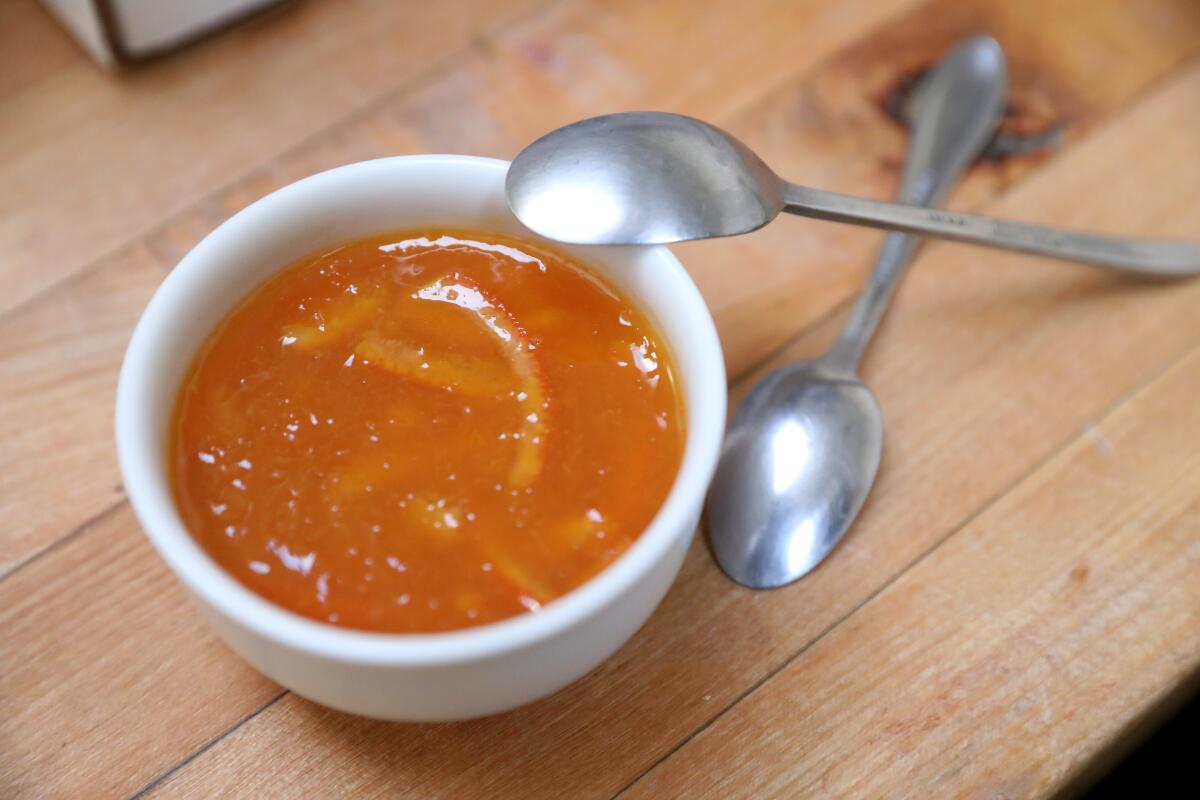
On the importance of buying from local farmers and the price of food:
I buy from family farmers who are here [in California]. If I don’t put my money into the economy here, it won’t survive. I get very irritated when people complain about the price of things. Because I don’t know any farmers making a lot of money. I see them as extremely dedicated; I deeply respect them as people.
If I get the pears from Argentina in April, which is not in season, then I won’t be supporting Tim up in Mendocino. His opportunity to survive declines. So when the customer buys from me, they’re buying from him. I’m the conduit to the farmer.
I don’t see people shouting and screaming about people spending $1,000 on their iPhone. But I always, always hear people complaining about food. We have to change our conversation. We have to start talking about quality, integrity and value as opposed to only price. And it’s a very American thing to talk about price.
On developing a love of fruit:
I think it was the act of preserving. And Britain is a brilliant nation for preserving and baking, and I love both of them.
It’s just something I kind of fell into. And marmalades are exciting preserves. They’re very complex. To make a conserve, you take some fruit, sugar, lemon juice [and] cook it. But marmalade is very nuanced, you’ve other elements in it. You’ve got bitterness, which we don’t embrace very much in cooking; we’ve got sour, we’ve got sweet, we’ve got acid. It’s far more complex than any conserve. And there’s a lot of technical skill in putting it together. Cutting and segmenting, balancing flavors: water and acid and sugar and bitterness. When you can get all those in alignment, a few times a year if you’re really lucky, it’s beautiful.
On closing the shop:
I just turned 69. I’m tired. I don’t have a lot of time for anything other than this. It’s stressful to run a business. There’s not enough infrastructure here to allow me to have the business without it being 24/7. I don’t want that anymore.
On whether she ever second-guesses her decision:
Every few minutes (laughs). It’s bittersweet. It’s really hard. I thought to myself years ago that it would be nice to have three careers. I was a sociologist. I spent a chunk of my life, 30 years, as a preserve maker and confectioner. Maybe I can reinvent myself. I don’t know what’s going to come.
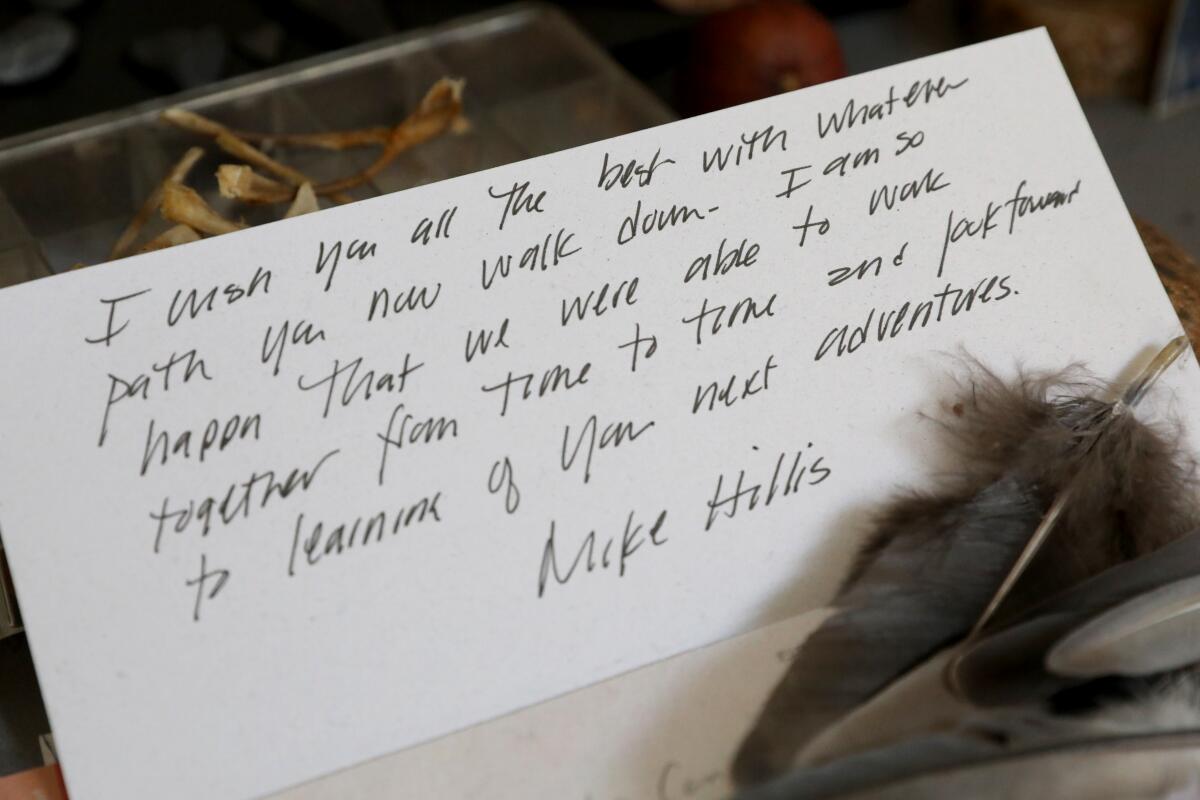
The June Taylor Company will continue to sell limited quantities of certain products in the coming weeks. It is located at the Still-Room, 2207 4th St., Berkeley, and is online at junetaylorjams.com.
Eat your way across L.A.
Get our weekly Tasting Notes newsletter for reviews, news and more.
You may occasionally receive promotional content from the Los Angeles Times.